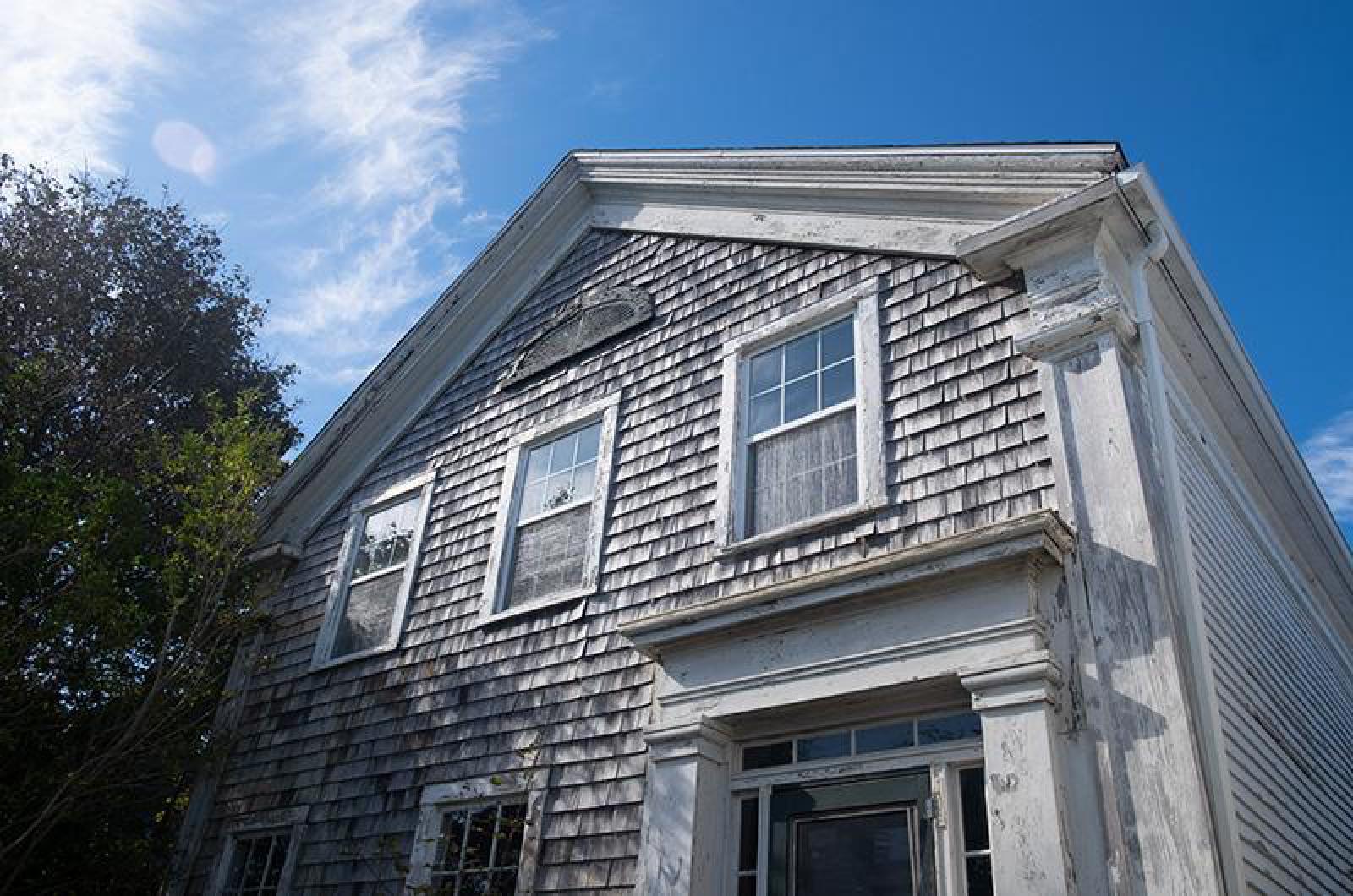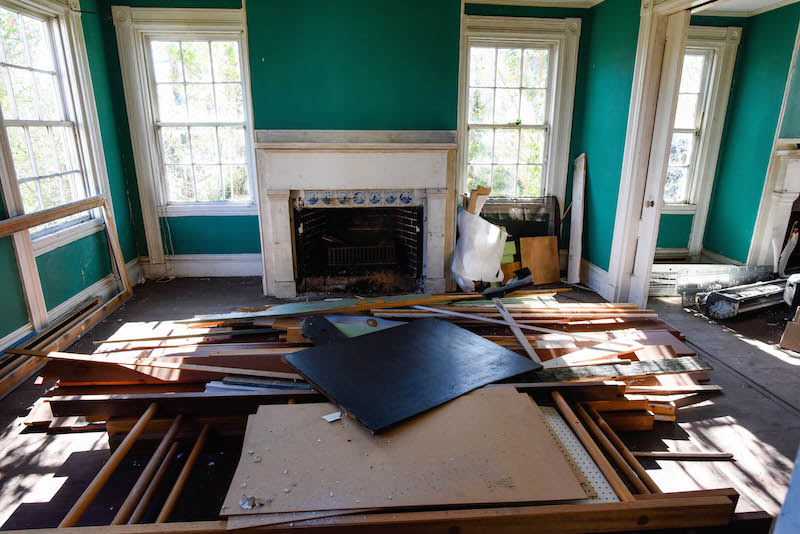Stop & Shop wants to move it. The Tisbury Historic District wants to save it. The Martha’s Vineyard Commission doesn’t fully know what it wants to do with it. And it doesn’t really know what it can do, either.
The Caleb Prouty House is a historic, early 19th-century Greek Revival home tucked behind Cromwell Lane in downtown Vineyard Haven, eligible for listing in the National Register of Historic places and determined by the commission to have significant historical value.
Stop & Shop owns the house and has filed a historic building demolition request with the commission to tear the building down. But according to their attorney Geoghan Coogan, the grocery store’s intention is to move the house to a different location, thereby making space for future plans to expand the store. Because the commission does not have a review trigger for moving a house, Mr. Coogan testified that their only option was to request a demolition.
“I’m kind of here voluntarily because I know that this should have some oversight,” Mr. Coogan said, explaining why he requested a demolition permit. “I’m not looking to squeak it by.”
In a somewhat roundabout public hearing on Thursday, commissioners and Mr. Coogan discussed the procedural and logistic challenges of preserving the home, and the extent of the commission’s ability to regulate where, when and how that preservation occurs. A previous public hearing was held on the demolition request last October, in which commissioners wrestled with the prospect of a tear-down and decided to leave the public hearing open.
On Thursday, Mr. Coogan said in the continued public hearing that the store had multiple people who were interested in the building if they could get approval from the commission to relocate it — and that they were willing to pay for the cost of the move, as well.
“Stop & Shop cannot really put plans together for development on this site if that building has to remain where it is,” Mr. Coogan said. “It doesn’t make any sense to renovate it where it is, for housing, for any other purpose. To best maximize that site, the building needs to be gone.”
But some commissioners felt that Mr. Coogan’s proposition was more of a “horse-and-cart” problem, in that they couldn’t approve the demolition or relocation of the building if Stop & Shop didn’t have expansion plans articulating why it needed to be moved. The building was constructed between 1810 and 1838 and is at the back end of Stop & Shop’s Vineyard Haven property, situated in a difficult corner behind their store.
The Tisbury Historic District Commission has written a letter, dated Feb. 20 of this year, saying that they do not want the house demolished because of its significance.
“The THC respectfully requests and recommends any activity by Stop & Shop and/or implementation of the DRI process by the MVC involving the Caleb Prouty House include preservation and complete historical renovation of the Caleb Prouty House at its present address or a location to be determined in concert with the THC,” the letter reads in part. “Having survived the fire of 1883 and being one of only two homes in Tisbury with most of the original interior woodwork intact, including the original floors, staircase and balustrade, the THC believes the house is of great historical value.”
Discussion at the meeting on Thursday generally swirled around the procedural questions of denying a request to demolish a house in favor of it being moved. But some commissioners, like Doug Sederholm, pushed for discussion about whether the building’s location was an important aspect of its historical significance. Others still felt that they didn’t know enough about the planned move — like where it would go and its condition after the move — to make a determination on the demolition request.
“I feel like we’re missing a lot of the information to be able to make a good decision on whether the structure should stay in its current location or be moved,” commissioner Ben Robinson said. “Until you can weigh out those things against the value of it staying in its current location, we are giving sort of an incremental approval.”
Mr. Coogan testified during the public hearing that Stop & Shop was potentially willing to come back before the commission with more details about the move, after they received approval. Ultimately, the discussion became bogged down in further procedural issues, with commissioners at points expressing frustration on the circular nature of the discussion.
“Why don’t we just try to be efficient here and save everybody a lot of time; deny the demolition and put some conditions upon its removal, and get the damn thing done,” commissioner Robert Doyle said. “We’re just arguing over a lot of nonsense when this is just efficiency.”
There was no testimony from the public during the hearing. After a little over an hour of discussion, commissioners voted to close the public hearing and leave the written record open for one week. Commissioners Gail Barmakian and Jim Vercruysse voted against closing the public hearing. A date has not been set for the commission to deliberate on the request.








Comments (14)
Comments
Comment policy »